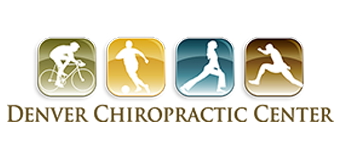Denver Chiropractor to attend 2015 Active Release Techniques (ART) Instructor’s meeting.
I’ll be out of the office on Friday, April 17, to attend the annual Active Release Techniques (ART) instructors’ meeting. – I’ve been an ART instructor since 2002. So if you need to come see us, don’t wait- give us a call and get in! 303.300.0424.
Here’s this week’s 1-Page Health News:
Loneliness & Social Isolation Associated with Early Mortality.
Researchers analyzed data from 70 studies regarding loneliness, social isolation, and living alone and found that social isolation was linked to an increased risk of early death. On the other hand, they note that the presence of social relationships has a positive influence on overall health.
Perspectives on Psychological Science, March 2015
Vitamin D Helps Reduce Chronic Pain.
Chronic pain patients given a daily supplement of 4000 IUs of vitamin D over the course of 90 days experienced substantial declines in both perceived pain and inflammation.
Lupus, April 2015
Can Yoga Help Pregnant Women with Depression?
A small study suggests that yoga may help ease depression symptoms in pregnant women. The study included 34 expectant mothers with depression who attended yoga classes for ten weeks with encouragement to perform yoga at home. The researchers found that the women’s depression scores fell during the study, and the more yoga they did, the better their mental health. Lead author Dr. Cynthia Battle adds, “Prenatal yoga really does appear to be an approach that is feasible to administer, acceptable to women and their health care providers, and potentially helpful to improve mood.”
Women’s Health Issues, March 2015
Chiropractic: Always Wear Your Seat Belt!
While seat belts are often considered a life-saving device, they also save drivers from serious injuries in the event of a car accident. An analysis of data from 10,479 drivers who were involved in motor vehicle collisions between 2006 and 2011 found that seat belt use reduced a driver’s risk for traumatic brain injury from 10.4% (no seatbelt) to 4.1% (seatbelt). Seatbelt users are also half as likely to suffer a traumatic injury to the head, face, or neck. Although seatbelt use reduces a driver’s risk for a serious spinal fracture, the researchers did find that seat belt use doubles the risk of a sprain or strain injury to the back. However, they note that treating minor back injuries can cost over thirteen times less than treating serious back injuries (like bone fractures), not to mention the impact such a traumatic injury can have to a an individual’s quality of life. Bottom line: Always wear your seatbelt!
Traffic Injury Prevention, August 2015
Should You Take a Daily Multivitamin?
Over the course of eleven years, older male physicians who took a daily multivitamin were 8% less likely to receive a cancer diagnosis than their peers who did not take a daily multivitamin. For those with a previous history of cancer, taking a daily multivitamin was linked to a 27% lower risk for a second cancer diagnosis. The authors of the study note that if all men took a daily multivitamin, it could prevent nearly 68,000 cancers per year.
Postgraduate Medicine, January 2015
